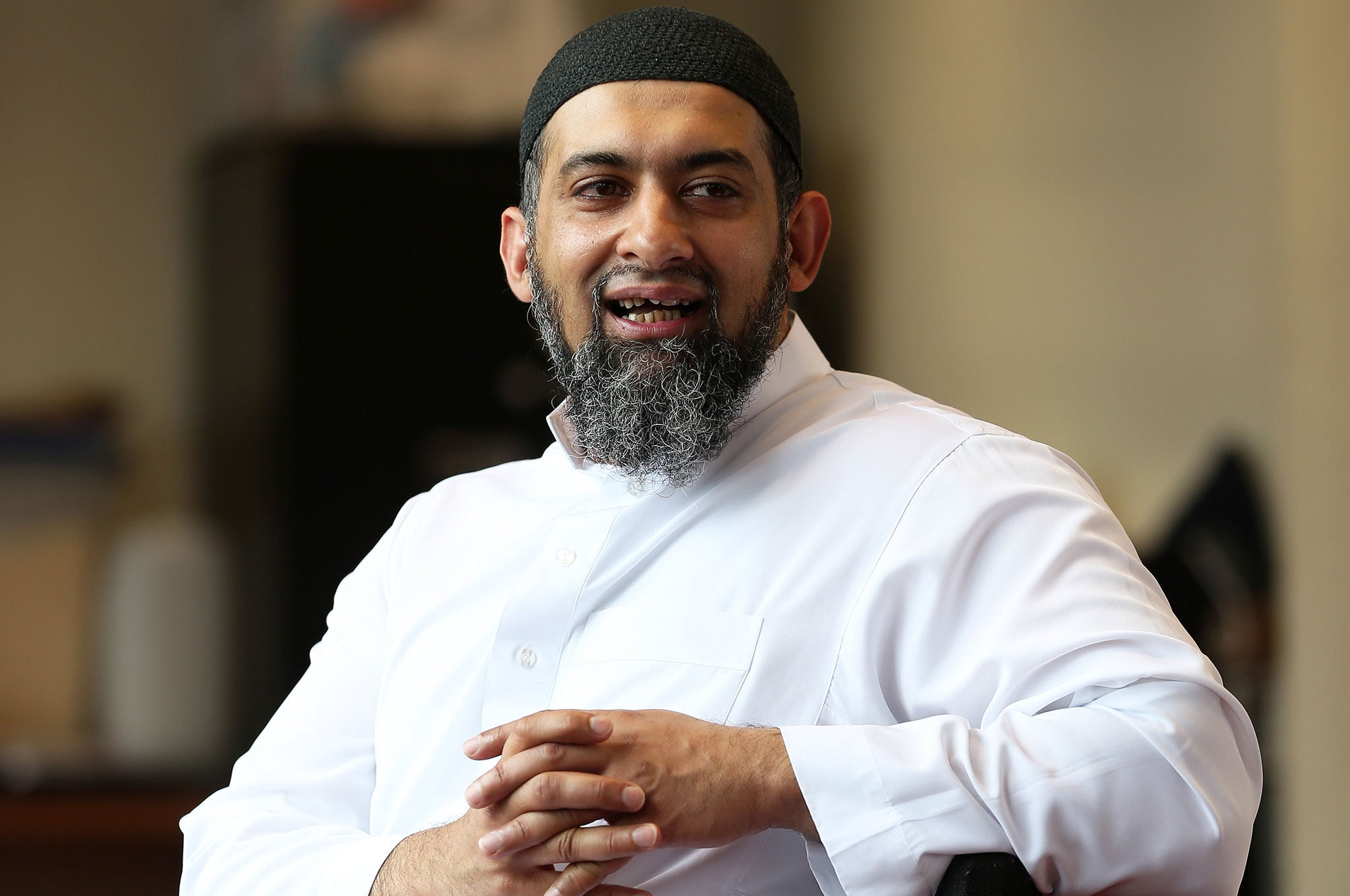British youths are lured by a psychotic death cult, says Bradford imam
Alyas Karmani say Islamic State have 'no legitimacy whatever'

Your support helps us to tell the story
From reproductive rights to climate change to Big Tech, The Independent is on the ground when the story is developing. Whether it's investigating the financials of Elon Musk's pro-Trump PAC or producing our latest documentary, 'The A Word', which shines a light on the American women fighting for reproductive rights, we know how important it is to parse out the facts from the messaging.
At such a critical moment in US history, we need reporters on the ground. Your donation allows us to keep sending journalists to speak to both sides of the story.
The Independent is trusted by Americans across the entire political spectrum. And unlike many other quality news outlets, we choose not to lock Americans out of our reporting and analysis with paywalls. We believe quality journalism should be available to everyone, paid for by those who can afford it.
Your support makes all the difference.Britain is losing young people to the lure of "a psychotic death cult", while Islamic State (IS) is winning the war for hearts and minds, warned one of the country's most respected Muslim imams last night.
In an interview with The Independent on Sunday, Alyas Karmani, who preaches in Bradford, said: "What the recent events in Syria show is the abject failure of a counter-messaging and counter-narrative strategy – it just isn't there.
"We've been talking about this de-radicalisation strategy for many years and yet there's nothing in place."
There are mounting concerns over the flow of hundreds of fighters from Britain to Syria, with many joining the ranks of IS, which Mr Karmani condemned as "a psychotic death cult" with "no legitimacy whatever". He added: "They are murderers and killers. They have got to where they are through nothing but intimidation and murder."
Would-be jihadis should be aware that they cannot simply change their minds if they get second thoughts once in Syria. "Many, when they get there, realise 'this is not what we are into', but once in the clutches of IS, they are not able to escape because it will never let you go – you are a young person willing to kill themself – that's a prime asset for them."
The Prevent programme, created after the 7/7 London bombings and aimed at stopping young Muslims from being radicalised , needs to be scrapped, he said. "Prevent is a tainted brand and a failed strategy; you can't keep on giving life to something which is fundamentally broken. It is disproportionate in that is focuses on Muslim extremism. Prevent is defunct now as far as I'm concerned. It has no credibility whatsoever."
Instead, we need to "reach young people, talk their language, understand their reality and connect with them on a human level, with compassion. We are not doing that. How is it possible for IS to connect with people, to completely destroy and annihilate who they are, but we can't connect with them?"
The war on terror has failed. "All it's done has created more polarisation, making the world a much more unsafe place," the imam said. We have "got to change the record" and start "normalising our relations with the Muslim world". And, he claimed, "IS is the beast that we have created by our escalation of the war on terror. If we continue along this trajectory we will create an even bigger beast in the future."
Khalid Mahmood, the Labour MP for Birmingham Perry Barr who has warned of the dangers posed by foreign fighters for several years, agrees a new approach is needed: "Prevent needs to be replaced. There are some areas in London where it is working, but that's about it really; it hasn't really worked anywhere else at all."
Funding for the counter-radicalisation work of Prevent done by local authorities has been cut drastically in the past few years, falling from £17m spent on 93 local authorities delivering Prevent work in 2010 to only £1.7m spent on 30 local authorities last year. In the same period, funding for police work on the strategy fell from £24m to £18.7m.
A Home Office spokesperson said: "We fundamentally revised the Prevent strategy in 2011," and added that since then, the Government has "implemented a raft of practical measures to strengthen our approach, in prisons, schools, universities and online".
But Yvette Cooper, Labour's shadow Home Secretary, said yesterday: "I remain concerned that the Government is not addressing the gaps in the Prevent programme – especially the lack of support for community-led approaches to preventing radicalisation."
This comes as a crackdown on British jihadism was announced by the Home Secretary, Theresa May, yesterday. Anti-social behaviour orders for extremists and tougher laws to make it illegal to join extremist groups – even if they are not directly involved in terrorism – are among measures being considered. And public sector organisations such as councils and schools will be given a new legal obligation to combat extremists.
Join our commenting forum
Join thought-provoking conversations, follow other Independent readers and see their replies
Comments